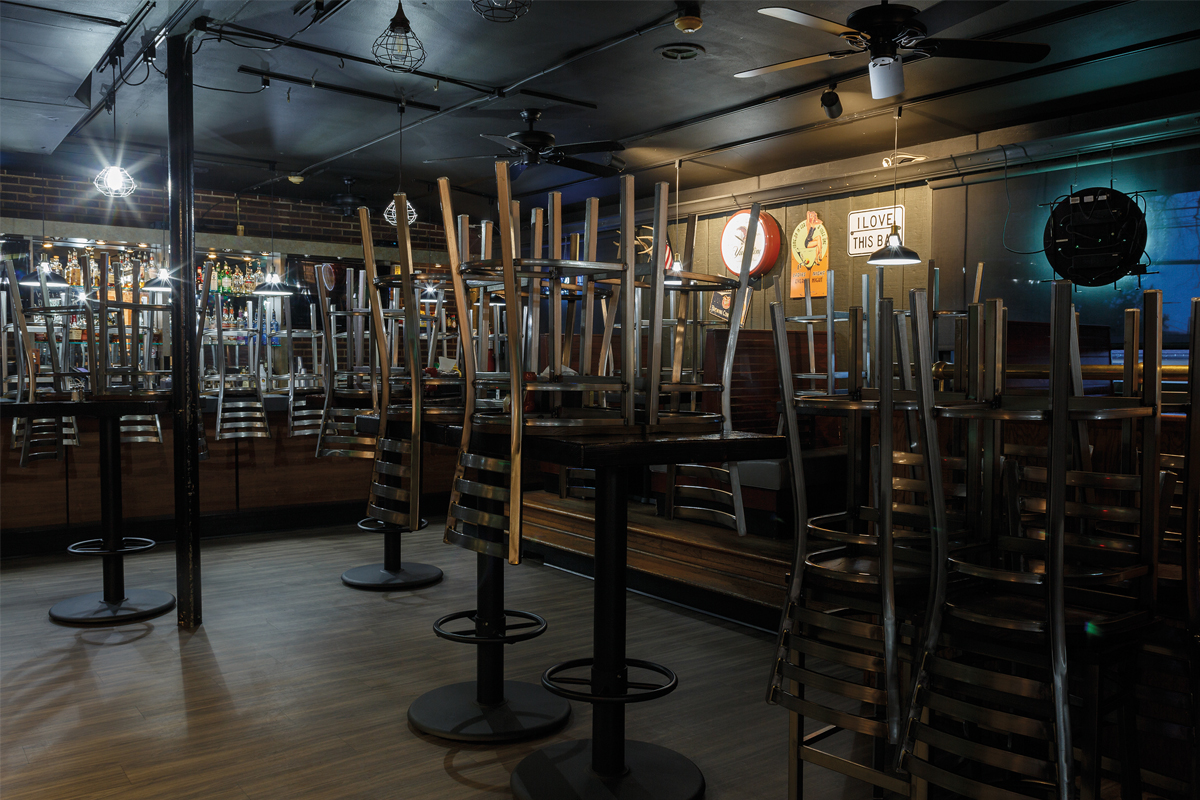-
Table service and physical distancing between groups from 27th December
-
Financial support ‘too little too late for many’, says UK Hospitality Scotland

GRANTS of up to £6800 for bars, restaurants and nightclubs have been announced by first minister Nicola Sturgeon as she again advised the public to minimise socialising and confirmed table service and physical distancing measures will come in on 27th December.
Speaking in the Scottish Parliament today (21st December), Sturgeon said from 27th December, for up to three weeks, “a requirement for table service only will be reintroduced for venues serving alcohol for consumption on the premises”; and that the Scottish Government would “ask indoor hospitality and leisure venues to ensure one-metre distance, not within, but between groups of people who are attending together”.
She also said the advice to people attending indoor hospitality venues remains that there should be no more than three households in any group, but that from 27th December until the end of the first week in January, when the advice would be reviewed again, people should “go back to limiting your contacts as much as you possibly can”.
“Please follow this advice over New Year – minimise Hogmanay socialising as much as you can,” said Sturgeon.
Large-scale Hogmanay celebrations, including that in Edinburgh, will not proceed, she said, and limits on the size of live public events (not private life events such as weddings) will kick in on 26th December for three weeks. Indoor standing events will be limited to 100, indoor seated events to 200, and outdoor events to 500 seated or standing; physical distancing of one metre will be required at events that go ahead within these limits, she said.
Acknowledging that the measures and advice to the public will have “significant financial implications for many businesses”, Sturgeon said Scottish Government and Treasury funding combined “adds up to a fund of £375 million that will help support business for the unavoidable impacts of our decisions over the next three weeks”.
For hospitality businesses, Sturgeon confirmed details of the ‘December and January Business Support Top Up – Hospitality’ fund (Coronavirus (COVID-19): December and January Business Support Top Up – Hospitality – information for businesses – gov.scot (www.gov.scot), which will be administered by local authorities and issue one-off grants to hospitality businesses of £4500 for premises with a rateable value of up to and including £51,000; or £6800 for premises with a rateable value of £51,001 or above.
“As I said last week, my view is that the scale and urgency of the Omicron challenge requires financial support for business on a scale similar to that at the start of the pandemic,” said Sturgeon.
“We will therefore continue to press the UK Government to take the threat of Omicron more seriously and to act accordingly.”
UK Hospitality Scotland executive director Leon Thompson said the announcement of further restrictions across hospitality businesses will be “the final straw” for many, “as owners and operators weigh up whether it will be worth remaining open beyond Christmas”.
“With public Hogmanay celebrations cancelled and Scottish Government advice for people to stay at home and to limit social contact, hospitality will have little opportunity to trade,” he said.
“Hotels, bars and restaurant are once again left counting the cost as they receive more cancellations and losses pile up.
“Whilst the financial package of £66 million already announced for hospitality, plus whatever may come from the £275 million highlighted today, is very welcome, it will not save businesses. Nor will it support workers, who are increasingly on reduced shifts as customers stay away.
“The financial package is too little and, given no money will reach businesses until some point in January, it will come too late for many businesses.
“UK Hospitality Scotland will continue to press the Scottish Government to get support to businesses quickly. We will also argue that the restrictions announced today should not be in place for more than the three weeks stated.”




















